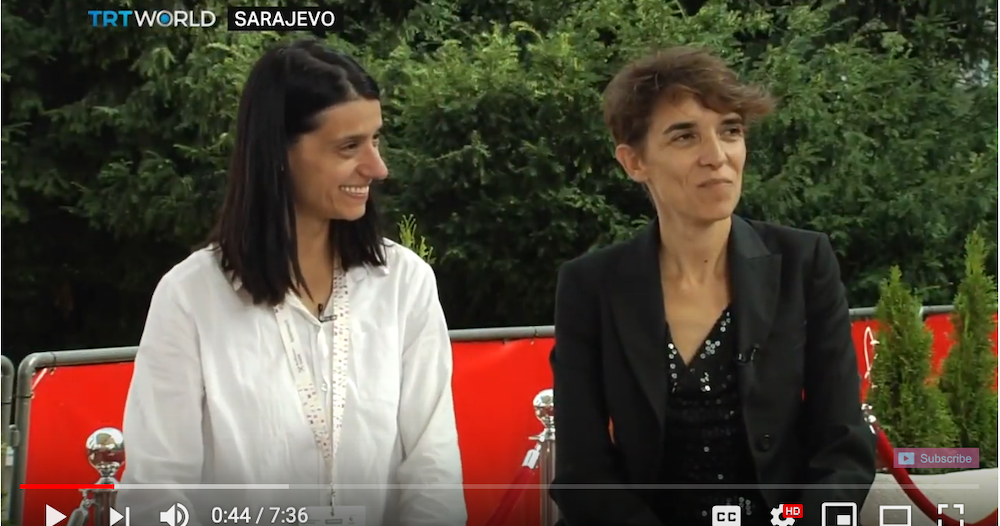
Cinema verité?
This brief encounter from the Ukraine is symptomatic of a larger trend that seems to characterize much of eastern Europe thirty years after the region’s refashioning as a western democracy. If museums similar to those in Lviv made anticommunism trendy in Budapest, Gdansk or Riga in the last decade, it is cinema that has started to popularize eastern Europe’s neoliberal, anticommunist orientation over recent years, and more effectively than many an architectural project. To this end, several eastern films mainly directed at western audiences started to emphasize the irreversible, western-bound course of the region, including Poland’s Mr. Jones, Ukraine’s Bitter Harvest, and Serbia’s Cinema Komunisto, to name but three.
While informing people about the communist-made famine in the Ukraine (as in two of these films) or about Tito’s monomania (as in the last) is important, the overzealous anticommunism of films dealing with post-socialist realities borders on the obsessive. Taking their cue from the deprecatory treatment of socialism promoted by historical films, young filmmakers born during the former socialist era increasingly paint eastern Europe’s present day as irremediably contaminated by its communist past. Leaving out the modernization of the region, which, under the communists experienced both unprecedented progress and, in the late socialist period, intense economic strain, these filmmakers are quick to leap to wholesale condemnation not only of communist crimes – which have certainly been committed – but of the entire recent history of the region at large.
Bulgarian cinema
Postsocialist Bulgaria mostly didn’t go in for anticommunist monuments, yet thanks to directors like Mina Mileva and Vesela Kazakova, Bulgarian cinema launched a desperate attempt to align the country’s political orientation with that of the West. In the unsubtly titled The Beast Is Still Alive (2016), two women returning from western Europe to the place they once called home (an increasingly familiar leitmotif in eastern European filmmaker practise) proceed to check out their grandfather’s secret police files in a bid to discover more about their family’s history. A veiled warning against institutionalized forgetting, the film apotheosizes the figure of the grandfather, who, not unlike the resistance fighters in Ukrainian depictions, is portrayed as a staunch resistance fighter and anticommunist. The film appropriates this belligerent attitude toward Communism as a suggested remedy not only for Bulgaria’s alleged incapacity to leave the past behind her, but also for the two directors’ failure to successfully define their transnational selves.
This identity crisis plagues the documentary of another Bulgarian director who, with unprecedented chutzpa, goes so far as to investigate what she believes is the suspicious past of her own parents. Using on-camera techniques reminiscent of those of children who, under early communist regimes, turned in their parents as counter-revolutionaries, Bojina Panayotova’s I See Red People (2018) attempts to establish a clear rupture between her parents’ lives – whom she suspects of having collaborated with the secret police – and her westernized, liberal self. Portraying her onscreen character as a paeon of enlightened western thinking, Panayotova castigates her parents for not having fled socialist Bulgaria, and for cooperating with a regime which – for unstated reasons – she condemns for having negatively affected her life.
Neoliberal realism
While these films attempt to root out a certain communist “mentality” that allegedly keeps Bulgaria from fully embracing democratic values, they at the same time betray a one-sided love affair with western capitalism. In fact, this worship of an otherwise disinterested West makes the films as political in their aims as any of the early socialist realist genre, which used anti-western propaganda to advance the values of Communism, and which these directors compellingly reject.